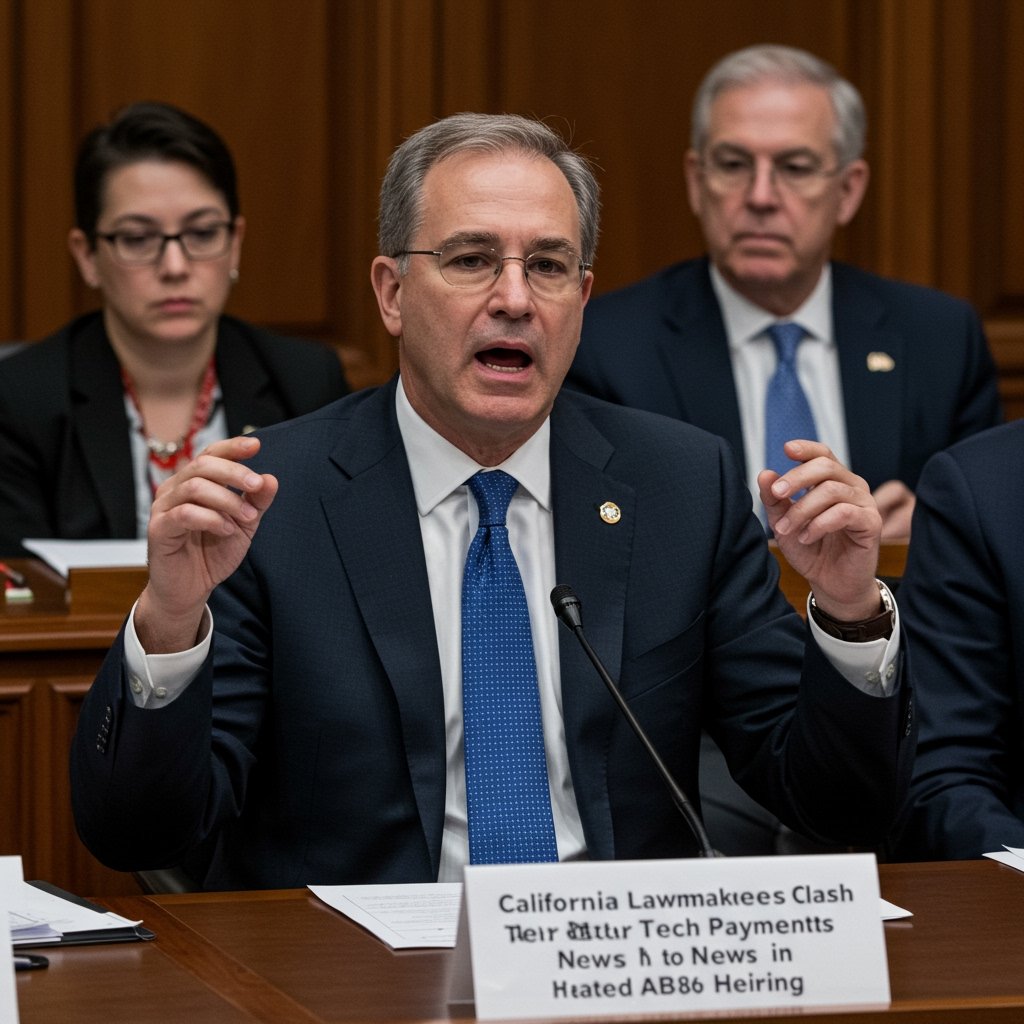California Assembly Judiciary Committee Delays Decision on News Compensation Bill Following Intense Debate
Sacramento, CA – The complex and contentious relationship between major technology platforms and news publishers was thrust into the spotlight earlier today as the California Assembly Judiciary Committee convened for a pivotal hearing on Assembly Bill 886, known as the California Journalism Preservation Act. The proposed legislation aims to compel large online platforms, such as Google and Meta, to compensate news organizations for the use of their content.
The hearing quickly became a forum for starkly opposing viewpoints, highlighting the deep divisions over how the value generated by news content online should be shared. Proponents argued the bill is a necessary lifeline for struggling local journalism, while opponents warned of detrimental impacts on the free flow of information and the structure of the internet.
Leading the charge in favor of AB 886 was Emily Carter, CEO of the California News Publishers Association (CNPA). Testifying before the committee, Carter painted a grim picture of the state of local news in California. She emphasized the significant financial challenges faced by newspapers and digital news outlets, citing steep declines in advertising revenue that have led to widespread layoffs, reduced coverage of critical local issues, and the emergence of “news deserts” in communities across the state.
Carter argued that platforms like Google and Meta benefit immensely from indexing, displaying, and facilitating the sharing of news content, which keeps users engaged and drives advertising revenue for the platforms. She contended that this usage, whether through search results snippets, shared links, or curated news feeds, constitutes a commercial use of valuable journalistic work for which the creators receive inadequate compensation. AB 886, in the view of the CNPA and its allies, would create a framework for platforms to negotiate fair payment for this use, helping to reinvest in local reporting and sustain essential civic information.
“For too long, the vital work of journalists, the bedrock of our democracy, has been used by immensely profitable technology platforms without fair compensation,” Carter stated, underscoring the urgency of the situation. “AB 886 is not about a handout; it’s about creating a marketplace where the value of journalism is finally recognized and compensated, allowing publishers to continue serving their communities.”
However, representatives from the technology industry offered a vigorous counter-narrative. Spokespersons for Google and Meta, among others, testified against the bill, asserting that it fundamentally misrepresents the relationship between platforms and news publishers. They argued that platforms primarily serve as valuable traffic drivers to news websites, sending billions of clicks annually that generate readership and potential revenue for publishers through subscriptions and advertising on their own sites.
The tech companies contended that news organizations voluntarily choose to make their content discoverable and shareable on platforms because it benefits them by expanding their reach and audience. They warned that AB 886 could disrupt this symbiotic relationship, potentially forcing platforms to alter how they link to or display news content in California, which could ultimately harm the very publishers the bill is intended to help by reducing their online visibility.
Furthermore, tech industry representatives raised concerns about the bill’s structure, including how compensation would be calculated and distributed, suggesting it could lead to complex litigation and unintended consequences for smaller publishers or independent journalists. They argued that the proposed mechanism could inadvertently favor larger media conglomerates while placing onerous burdens on platforms that could impact the user experience and access to information.
The hearing featured extensive testimony not only from the primary stakeholders but also from journalists, community advocates, academic experts, and other interested parties, reflecting the broad societal implications of the bill. Committee members posed probing questions about the bill’s mechanics, its potential economic impacts on both the tech industry and news outlets of varying sizes, and the potential for platforms to retaliate by limiting the availability of news links.
The atmosphere in the committee room reflected the high stakes involved, with sharp exchanges and passionate arguments presented by both sides. The debate underscored the difficulty in legislating solutions for complex digital ecosystems and the challenges of balancing the interests of powerful global corporations with those of local, struggling news organizations deemed essential for democratic health.
After hearing hours of testimony and deliberation, the California Assembly Judiciary Committee opted to delay making a decision on the future of AB 886. The decision signals that lawmakers require more time to consider the multifaceted arguments presented and potentially explore possible amendments or alternative approaches. The bill remains alive but its path forward is uncertain as the committee weighs the potential benefits against the significant concerns raised by the tech industry and others. The delay leaves publishers and platforms in a holding pattern, awaiting further developments on this nationally watched legislative effort to redefine the economics of news in the digital age.








